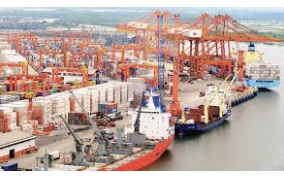NEWS RELEASE SUMMARY – May 30, 2024
SAN DIEGO – A federal grand jury has charged 14 people with participating in an international multi-million-dollar cocaine trafficking and money laundering scheme.
According to an indictment unsealed today, plus additional information in a related search warrant, the alleged leader of the trafficking organization, Jesus Ruiz-Sandoval, managed the smuggling and distribution of large quantities of cocaine from Tijuana into the United States, and the movement of cash proceeds back to Mexico. Ruiz is a United States citizen who fled the U.S. for Mexico several years ago, in violation of his terms of supervised release for a prior federal drug-trafficking crime (Case number 08-cr-00713-DSF in the Central District of California).
The search warrant said Ruiz worked closely with other co-conspirators, including John Joe Soto and Esteban Sinhue Mercado, who are also U.S. citizens currently residing in Mexico. The alleged conspiracy involved smuggling large multi-kilo quantities of cocaine from Tijuana through San Diego to Los Angeles. From there, commercial trucks transported the cocaine from Los Angeles to the Mid-Atlantic for distribution in the Eastern United States. Commercial trucks also transported cash proceeds from the cocaine sales back across the United States to Los Angeles, where it was packaged and loaded into cars that couriers drove through San Diego and into Tijuana, delivering the proceeds to Ruiz there. To date, investigators have seized more than $5 million in cash proceeds and more than 130 kilos of cocaine.
“This office targets sophisticated international trafficking cells by hitting them where it hurts — their wallets,” said U.S. Attorney Tara K. McGrath. “Following the money takes you to the heart of a trafficking organization and this prosecution aims to drive a stake through it.” U.S. Attorney McGrath expressed her gratitude to the Los Angeles Police Department and the Hawthorne Police Department, which provided invaluable partnership in this investigation.
“One of the pillars of Homeland Security Investigations (HSI) is to identify and dismantle international drug trafficking organizations who poison our communities,” said Christopher Davis, Acting Special Agent in Charge for HSI San Diego. “Throughout this investigation and with the unwavering support from our law enforcement partners, we further discovered their involvement in a money laundering scheme. This indictment serves as a warning to those believing they can remain undetected by HSI – our message is clear. You will be found and you will be brought to justice.”
“This indictment marks a significant milestone in our relentless pursuit of justice against transnational criminal organizations. By leveraging collaborative efforts, CBP alongside our partner agencies are able to target the root causes of crime and dismantle organized criminal enterprises,” said Sidney K. Aki, Director of Field Operations for San Diego Field Office. “Ultimately, this unified approach promotes public safety, reduces the flow of illegal drugs and laundered funds, and strengthens the resilience of communities against these threats.”
This investigation is one of two into Ruiz. Several months after a grand jury in San Diego first indicted Ruiz, a separate grand jury in the Central District of California indicted him and others for a separate, but similar, international trafficking scheme. See United States v. Sandoval et al., 24-CR-008 AB (C.D. Cal.). The prosecutions of Ruiz and others indicted in both cases will proceed in coordinated fashion.
Another defendant, Ricardo Miranda-Beltran (aka Ricardo Miranda-Benitez), appeared Tuesday for his initial appearance on the indictment. Miranda was arrested in the Eastern District of California and ordered detained, and then ordered to appear in San Diego on these charges.
DEFENDANTS Case Number 23cr1574 AJB
*Jose Ruiz-Sandoval Age: 45 Mexico
*John Joe Soto Age: 43 Mexico
*Esteban Sinhue Mercado Age: 24 Mexico
Brittany Mangrum Age: 36 Van Nuys, CA
Liliana Ruvalcaba-Gonzalez Age: 25 Anaheim, CA
Yessenia Lazo Age: 23 Los Angeles, CA
Ricardo Miranda-Beltran Age: 57 Bakersfield, CA
Edwin Rafael Hernandez Age: 32 Pasadena, CA
*Denotes fugitives who are not in custody
**Additional defendants’ names are redacted and not listed here
SUMMARY OF CHARGES
Conspiracy to Distribute Controlled Substances – Title 21, United States Code, Sections 841(a) & 846
Maximum Penalty: Life in custody, $10 million fine, and a life term of supervised release
Conspiracy to Import Controlled Substances – Title 21, United States Code, Sections 952, 960, and 963
Maximum Penalty: Life in custody, $10 million fine, and a life term of supervised release
Consp. to Launder Monetary Instruments – Title 18, United States Code, Sections 1956(a)(2)(B)(i) & (h)
Maximum Penalty:- Twenty years in custody, $500,000 fine or twice the laundered amount, and a 3-year term of supervised release
Bulk Cash Smuggling – Title 31, United States Code, Section 5332
Maximum Penalty: Five years in custody, $250,000 fine, and a 3-year term of supervised release
AGENCIES
Homeland Security Investigations
Customs and Border Protection
Los Angeles Police Department, Transnational Organized Crime Section
Hawthorne Police Department
*The charges and allegations contained in an indictment or complaint are merely accusations, and the defendants are considered innocent unless and until proven guilty.
This prosecution is part of an Organized Crime Drug Enforcement Task Forces (OCDETF) investigation. OCDETF identifies, disrupts, and dismantles the highest-level drug traffickers, money launderers, gangs, and transnational criminal organizations that threaten the United States by using a prosecutor-led, intelligence-driven, multi-agency approach that leverages the strengths of federal, state, and local law enforcement agencies against criminal networks

 Cannabis News1 year ago
Cannabis News1 year ago
 One-Hit Wonders1 year ago
One-Hit Wonders1 year ago
 Cannabis 1011 year ago
Cannabis 1011 year ago
 drug testing7 months ago
drug testing7 months ago
 Marijuana Business Daily1 year ago
Marijuana Business Daily1 year ago
 Education1 year ago
Education1 year ago
 Cannabis1 year ago
Cannabis1 year ago
 Education1 year ago
Education1 year ago
















